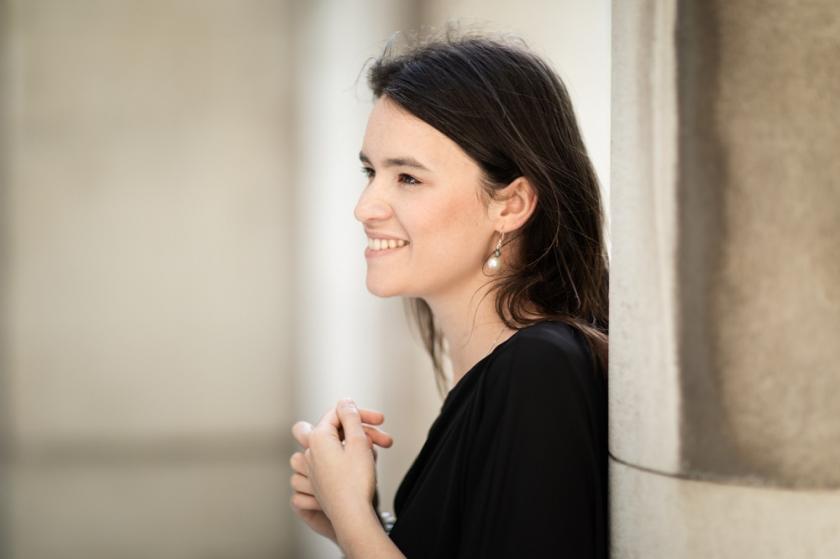As any good choral singer knows, you can’t deliver too emphatic a “k” for the opening Kyrie Eleison of any one of thousands of Mass settings. Well, almost. The Scottish Chamber Orchestra Chorus produced such a distinct, detached, and powerful opening consonant for this performance of Bach’s B minor Mass that it seemed to bounce several times round the auditorium before being enveloped by the great tide of chromaticism that characterises this magisterial movement.
As the Kyrie developed, the consonants retreated somewhat to a more conventional audibility, but the opening served to remind us that this Mass setting, like any other, is not just pure music but does have words, and however well they are known they do have meaning and need to be heard.
I last heard this chorus in the richly homogenised setting of Brahms’ Requiem, and was interested to hear how it would adapt to music from nearly a century and a half earlier, albeit equally rich in its densely chromatic contrapuntal lines. The choral sound that emerged for Bach was lighter, more nimble, with a slight, and I think deliberate, air of fragility. From time to time some of the stronger voices could be heard emerging from the choral texture, which sought to underline the often intensely personal feelings that inhabit this music.
That is not to ignore the adaptations within the orchestra too, in full early 18th Century mode with chamber organ, baroque horns, trumpets, timpani and woodwind. Modern strings were played largely without vibrato but with a steely clarity, the whole ably directed by Richard Egarr from the harpsichord.
In fact, Egarr was not so much “at” the harpsichord but more generally in its vicinity, wandering around to the sides of the instrument (the keyboard facing the audience) to give encouragement to the violins or cellos as took his fancy. Only occasionally did he pull out a stool from under the keyboard and sit on it like a saddle to play a few notes, before almost immediately getting up again to resume his wanderings. It would almost have been distracting were not the musical results so compelling in their own right.
The B minor Mass really belongs to the chorus, trained by chorus master Gregory Batsleer, but an impressive quintet of soloists brought moments of calm, contrast, and evident joy – I have never seen so many smiles, as if they were all in on a huge joke that no-one else had noticed. In the duet "Christe eleison" sopranos Rowan Pierce and Mhairi Lawson were just slightly underpowered, and the same could be said for Lawson’s impeccably articulated but softly sung "Laudamus te". No worries about audibility for tenor James Gilchrist, whose muscular projection was most evident at the opening of the Credo, which he launched on his own with forthright confidence.
Roderick Williams shone, as you might expect of a superstar baritone, in his many appearances, dotting cheerfully around the stage either to sing close to the chorus or more conventionally at the front of the stage for the great aria "Quoniam tu solus sanctus".
But the real surprise, and extraordinary revelation of the evening, was the mezzo-soprano voice of Helen Charlston, heard in "Qui sedes a dextra" and latterly in the gorgeous Agnus Dei. This is a voice of mysterious depths, and luscious texture, produced seemingly without effort, sounding at times close to a counter-tenor but without the latter’s sense of artificiality. It seems like a contradiction to say that a voice that is so unusual should also be quite sublime, but it is true.
In each case, solo arias and duets were immaculately accompanied by beautifully calibrated orchestral solos from flutes, horn and oboe d’amore.
The end of Bach’s masterpiece is too short. The soulful Agnus Dei leaves you wanting more, especially with Charlston singing, and the haunting valedictory chorus "Dona nobis pacem" severely understays its welcome – we are ready for a repeat but Bach does not oblige, and the end comes too abruptly however graciously it is performed. We leave the hall wanting the show to go on for ever













Add comment